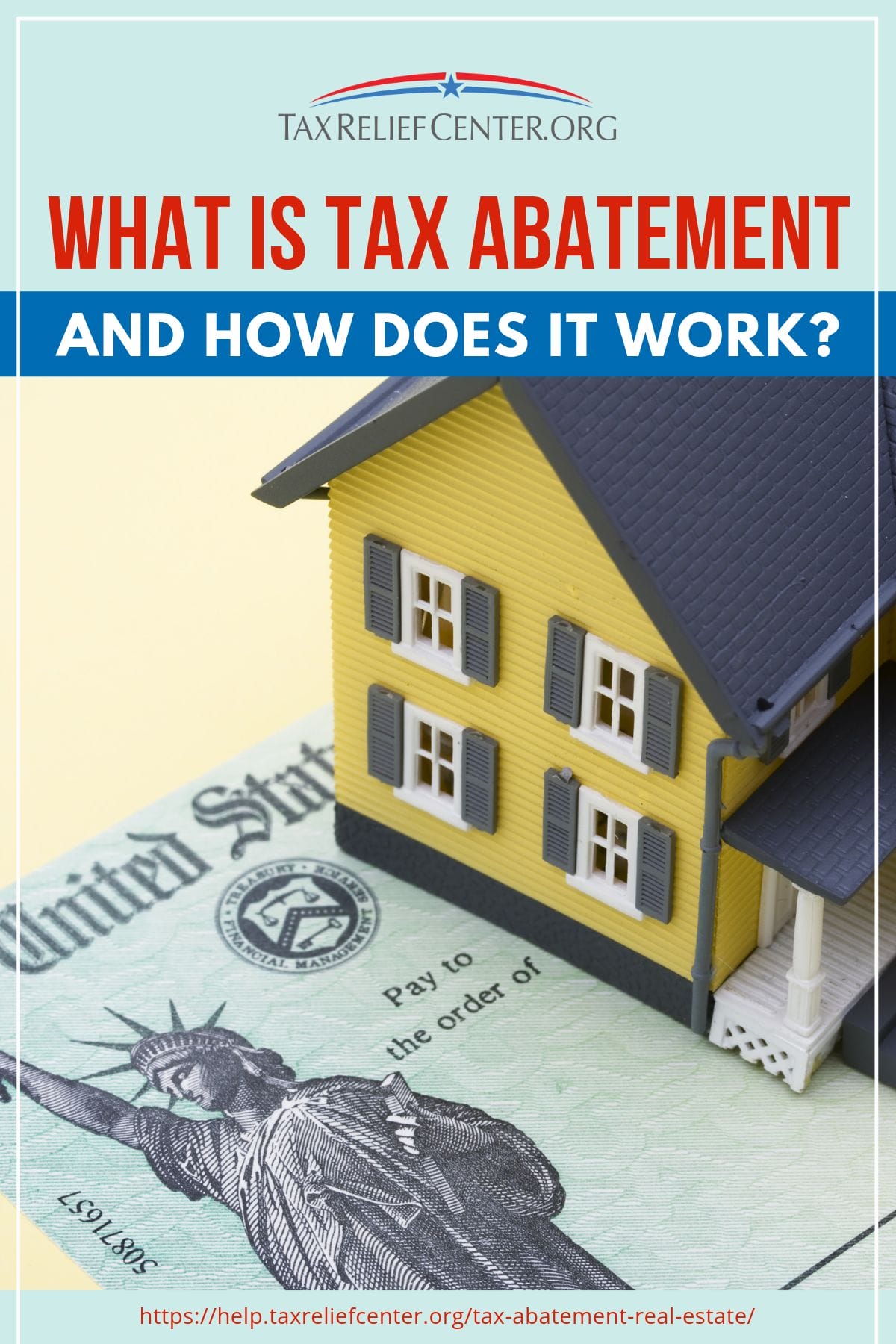Tax abatement programs significantly lift a homeowner’s property tax burdens for a long period of time, so it’s best to be briefed about them and how you can take advantage of what they offer.
RELATED: How To Write Off Taxes On Rental Property | Rental Property Tax Write Offs
In this article:
- What Is Tax Abatement?
- How Is Tax Abatement Different from Tax Penalty Abatement?
- How Does Tax Abatement Work?
- What Are Examples of Tax Abatements?
- How Do I Apply for Tax Abatement?
- How Do I Check Tax Abatement?
- What Is a Tax Abatement Agreement?
Learn the Ins and Outs of Tax Abatement
What Is Tax Abatement?
Tax abatement happens when a local government reduces or eliminates taxes for real estate properties. Cities and municipalities create tax abatement programs for the economic development of certain areas within their boundaries.
Homeowners and property developers gain savings from tax abatement programs since property taxes reach a maximum of 3% of a property’s value every year.
How Is Tax Abatement Different from Tax Penalty Abatement?
Taxpayers should understand the difference between tax abatement and tax penalty abatement to avoid confusion. Tax abatement involves real estate properties, while tax penalty abatement involves a taxpayer asking the IRS for a reduction or elimination of tax penalties for late tax payments or incorrect amount of taxes paid.
Homeowners can also apply for tax abatement individually if they believe the local government overassessed their properties, resulting in higher taxes paid.
For example, you own an $85,000 home. Thanks to a property tax abatement program, you can save around $2,550 a year.
How Does Tax Abatement Work?
City governments draft policies for the economic development of areas within their jurisdiction. Since these policies involve the growth of a neighborhood or a municipality, governments use tax abatement programs to encourage people to move into the area or improve their properties.
What Are Examples of Tax Abatements?

- Tax Abatement in California
Homeowners can receive a $7,000 exemption on their property’s assessed value for their main home if they reside in it on January 1. They can gain the full exemption if they file before February 15 of that year.
- Tax Abatement in Cincinnati
The city of Cincinnati taxes homeowners only for the pre-improvement value of a property for 10-15 years. This means homeowners can expect to pay the same rate for more than a decade, even if they make improvements to their homes.
- Tax Abatement in Florida
Homeowners in Florida receive a $25,000 property tax exemption for their home and an additional $25,000 exemption from non-school taxes.
- Property Tax Abatement in Ohio
The city of Cleveland temporarily eliminates 100% of the increase in real estate tax of a property when the homeowners remodel or convert it into a two-family or multifamily home. This suspension of tax property increase lasts for 15 years.
The state of Ohio itself possesses several tax abatement programs like the Community Reinvestment Area (CRA), Municipal Urban Renewal, and Enterprise Zone Tax exemptions. Residents should inquire to their local city hall about existing tax abatement programs within their cities.
- Property Tax Abatement in NYC
New Yorkers gain several forms of relief from NYC property tax thanks to a mix of tax abatement programs like the J51 Tax Abatement, the Cooperative and Condominium Abatement, the Green Roof Abatement, the Solar Roof Abatement, and the 421a Abatement Program.
The 421a Exemption gives apartment owners in New York the longest period of tax relief since these last 15 years to 25 years. If you live in New York, you can perform a 421a tax abatement lookup here.
- Tax Abatement in New Jersey
New Jersey authorized its municipalities to provide homeowners and property developers a 5-year tax abatement through the N.J.S.A. 40a:21-1 legislation. The 5-year tax abatement program slowly rolls in taxes, from no tax payments in the first year, 20% in the second year, 40% in the third year, 60% for the fourth, and 80% for the fifth year.
- Tax Abatement in Texas
Chapter 312 of the Texas Tax Code allows municipalities to forge agreements with property developers and owners. These local abatement programs can last for up to 10 years according to the law, so it’s best to consult with the municipality about their existing programs and rates.
How Do I Apply for Tax Abatement?
Once homeowners learn about the programs within their area, they need to check or comply with the requirements. Homeowners must meet requirements pertaining to a house’s age, the type of improvements involved, and the completion of necessary building permits.
City governments also stress the importance of staying current on property tax payments. They can revoke the tax abatement if a homeowner becomes delinquent.
RELATED: How To Get Rid Of An IRS Tax Lien On Your Home
How Do I Check Tax Abatement?
If you’re moving to a new city, you can always check for programs by browsing on the Internet. You can type the keyword “tax abatement” and the name of the city you’re moving to.
You can likewise call or visit the municipal or city assessor’s office to find out about existing abatement programs. The city assessor’s responsibilities involve appraising the value of properties across their city, so they should always know laws affecting property taxes in their areas.
What Is a Tax Abatement Agreement?
A tax abatement agreement involves two parties: the municipal government and a second party, possibly an individual or a company. The agreement details how the local government will reduce property taxes for an improvement an individual performs to a home or development a company contributes to the local economy.
These tax abatement agreements also include a prescribed start and end period lasting usually for 5, 10, 15, and 25 years.
Homeowners should find out if they qualify for tax abatement when they move into a new home, remodel, or convert their existing homes to other types. Tax abatements take the edge off increasing property taxes year after year and make property owners feel they are progressing in life.
Do you currently benefit from a tax abatement on your property? For how long? Share your tax abatement experience in the comments section below.
If you owe back taxes, visit taxreliefcenter.org for more information on tax relief options.
Up Next:
- Different Types Of Taxes We Pay In The US [Infographic, 2019 Updated]
- What Taxes Can I Write Off If Working From Home?
- 12 Reasons To Speak To A Tax Relief Specialist About Your Back Taxes ASAP


